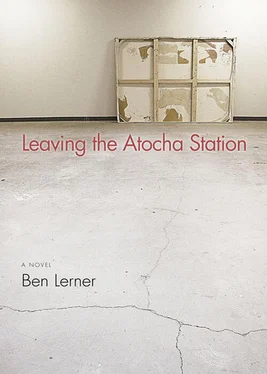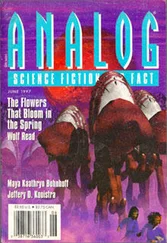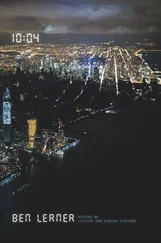Everyone began to take their seats; the gallery was long and narrow with high ceilings and white walls and it was full; there were probably eighty people. There was a podium with a lamp and microphone and a small pitcher of water and as I sat with Teresa and Rafa in the fourth row, pissed off, nauseated with anxiety, searching my bag for a tranquilizer as inconspicuously as possible, Arturo approached the podium, thanked everyone for coming, then talked about the night’s program. We were lucky to have two of the most interesting new voices in Spanish and American poetry in the gallery. We would first hear from Tomás Gomez or Gutiérrez, who had won such and such prizes, and whose work had such and such characteristics, and who was also a talented painter. Then we’d hear from Adam Gordon, who was in Madrid on a prestigious fellowship, whose work was having some sort of effect on something, whose poetry was intensely political and reminiscent of a Spanish poet I’d never heard of, only instead of protesting Franco, it took on the United States of Bush. This amplified my nervousness, as it had nothing to do with my poetry, such as it was, and as Arturo sat down to applause and Tomás Gomez or Gutiérrez approached the podium, I imagined beating Arturo’s face in with the microphone or lamp.
Tomás looked less like he was going to read poetry and more like he was going to sing flamenco or weep; he did not say thank you or good evening or anything but instead paused dramatically as if to gather his strength for what would be by any measure a heroic undertaking. He had shoulder-length hair that kept falling in his eyes as he arranged his papers and he kept smoothing it back with a gesture I found studied; he struck me as a caricature of himself, a caricature of El Poeta. A few more people were trickling into the gallery and he looked at them gravely until they found seats. Then he looked back down at his paper, looked back up at the crowd, and when the silence had intensified to his liking, he uttered what I assumed was the title of his first poem: “Sea.” To my surprise this poem was totally intelligible to me, an Esperanto of clichés: waves, heart, pain, moon, breasts, beach, emptiness, etc.; the delivery was so cloying the thought crossed my mind that his apparent earnestness might be parody. But then he read his second poem, “Distance”: mountains, sky, heart, pain, stars, breasts, river, emptiness, etc. I looked at Arturo and his face implied he was having a profound experience of art.
Maybe, I wondered or tried to wonder, I’m not understanding; maybe these words have a specific weight and valence I cannot appreciate in Spanish, or maybe he is performing subtle variations on a sexist tradition of which I am not in possession. As Tomás read a third poem, “Work Dream” or “Dream Work,” I forced myself to listen as if the poem were unpredictable and profound, as if that were given somehow, and any failure to be compelled would be exclusively my own. The intensity of my listening did at least return strangeness to each word, force me to confront it as a sound, and then to recapture the miracle of sound opening or almost opening onto sense, and I managed to suspend my disgust. I could not, however, keep this up; it required too much concentration to hear such familiar figurations as intensely strange, even in Spanish. It was not until I began to consider the scene more generally that my interest caught: there were eighty or so people gathered to listen to this utter shit as though it were their daily language passing through the crucible of the human spirit and emerging purified, redeemed; or here were eighty-some people believing the commercial and ideological machinery of their grammar was being deconstructed or at least laid bare, although that didn’t really seem like Tomás’s thing; he was more of a crucible of the human spirit guy. If people were in fact moved, convincing themselves they discovered whatever they projected into the hackneyed poem, or better yet, if people felt the pressure to perform absorption in the face of what they knew was an embarrassing placeholder for an art no longer practicable for whatever reasons, a dead medium whose former power could be felt only as a loss — these scenarios did for me involve a pathos the actual poems did not, a pathos that in fact increased in proportion to their failure, as the more abysmal the experience of the actual the greater the implied heights of the virtual. Then I was able to hear the perfect idiocy of Tomás’s writing as a kind of accomplishment, especially combined with his unwitting parody of himself, doing that thing with his hair, gripping the podium as though the waves of emotion breaking over him might wash him from his feet, and I began to relax a little about my own performance, the tranquilizer no doubt also having its effect. I told myself that no matter what I did, no matter what any poet did, the poems would constitute screens on which readers could project their own desperate belief in the possibility of poetic experience, whatever that might be, or afford them the opportunity to mourn its impossibility. My own poetry, I told myself, would offer this to the gathering as, or even more effectively, than Tomás’s, as my poems in their randomness and disorder were in some important sense unformed, less poems than a pile of materials out of which poems could be built; they were pure potentiality, awaiting articulation. And translation would further keep my poems in contact with the virtual, as everyone must wonder what Arturo or Spanish was incapable of carrying over from the English, and so their failure, their negative power, was assured.
Tomás’s increasingly histrionic manner signaled his reading was drawing to a close, and after yet another terrible poem he paused, looked at the audience again, and then abandoned the podium without a word, at which point everyone applauded. When the applause died down Arturo nodded to me. We approached the podium and he explained that I would read the poem in English and then he would offer the translation. He might also have claimed that, even if one had no English, some of the power of the original would be palpable. While he was saying this or something like it I poured myself a glass of water, nearly spilling it when I drank, and opened my notebook. When he turned and looked at me to signal I should start, I said thank you into the microphone and began to read my poem, to read it in a deadpan and monotonic but surprisingly confident way, considering my knees were shaking and my hands were freezing, to read it as if either I was so convinced of the poem’s power that it needed no assistance from dramatic vocalization, or, contrarily, like it wasn’t poetry at all, just an announcement of some sort: this train is delayed due to trackwork ahead, etc. I fantasized as I listened to myself that the undecidability of my style — was it an acknowledgment of the poem’s intrinsic energy or a reading appropriate to its utter banality — would have its own kind of power, especially in Tomás’s wake:
Under the arc of the cello
I open the Lorca at random
I turn my head and watch
The lights slide by, a clearing
Among possible referents
Among the people perusing
The gallery walls, dull glow
Of orange and purple, child
Behind glass, adult retreating
I bit hard to deepen the cut
I imagined the passengers
Could see me, imagined I was
A passenger that could see me
Looking up …
When I finished my portion of the reading I returned to my seat as the crowd applauded and then I realized I was no doubt supposed to stand with Arturo as he read his translations, but I was too relaxed now to rejoin him at the podium.
Читать дальше












